For some reason, concert pianist Gilles Vonsattel had never learned to play Clair de Lune, a staple of the piano repertoire. But strolling the decks of Compagnie du Ponant’s mega-yacht, l’Austral on a moonlit evening on the Aegean Sea, he was inspired to learn the Debussy classic. Two days later, he performed it in the ship’s intimate auditorium, assisted by an iPad containing the piano score. And I got to hear him.
Vonsattel was on board l’Austral as one of six musicians performing a series of chamber and piano concerts over the course of a week-long cruise. I was one of about 260 passengers sailing the islands of the Aegean to the accompaniment of Beethoven, Dvorak, Brahms, Ravel, Liszt, and other giants of the classical repertoire.
Later that night, I found myself watching the moon dancing on the wine-dark sea. Somewhere in the night were ancient places whose stories dated back to Homer: fabled names like Ephesus and Rhodes, Santorini and Gallipoli. And timeless music accompanied our voyage on the timeless sea.
In Your Bucket Because…
- Which one of these words DON’T you like? Luxury, Greek islands, French food, International caliber music.
- You like variety: A Ponant music cruise has it: shore excursions, history and culture, music, Mediterranean landscapes, and lingering over great food.
- Good for: Francophiles, music lovers, afiocionados of smal-ship cruising.
Classical Music in the Classical World
During the opening address to the passengers, l’Austral’s captain, Jean-Philippe Lemaire, explained that the idea behind the classical music cruises was not merely to hear international-caliber music, but to actually participate in an artistic experience — with fellow listeners, with the musicians, and with music itself — as we went about our daily lives onboard. We’d chat with the musicians in the halls and the dining rooms, we might hear them practicing in one of the lounges, we could attend their daily afternoon lectures about the concerts. Or we could simply listen. But the goal was to interact about music in the beautiful setting of the sea and the Greek islands, feeding our souls as we shared our week together on our floating cocoon.
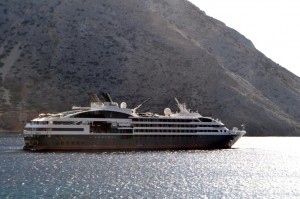
On l’Austral, the passengers are mostly a mix of Francophones and Angolphones; the crew is bi-lingual, and le capitain gave his welcome in both languages. In French, it sounded like the epitome of romance.
And why not? Certified to sail into frigid Antarctic seas as well as balmy Mediterranean waters, L’Austral offers a global itinerary that is a bucket-list of exoticism and romance. We boarded in Athens under the shadow of the Acropolis and disembarked in Istanbul in sight of the Blue Mosque. In between we called at some of the iconic Greek Islands — Santorini, Rhodes, and Patmos — as well as smaller islands such as Nisyros, Sifnos, Symi, and Chios, which are often bypassed by bigger ships.
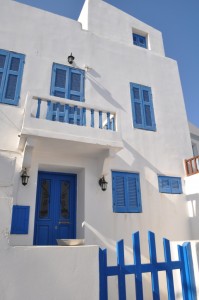
If there was a problem on this cruise, it was only simply an overabundance of choices. I agonized whether to cruise into the crater of Santorini or to visit the volcanically buried ruins of Akrotiri and was immensely relieved to find the schedule allowed me to do both.
On Sifnos, I visited picture-perfect white-washed villages; in Nisyros, I hiked into the still-steaming crater of a caldera; in Patmos I climbed down ancient steps to a cave where St. John wrote his Revelations, and in Rhodes, I followed the footsteps of the Knights of St. John of Malta through canyon-like streets edged with towering centuries-old walls. And in pretty little Symi, I shopped.
A Continental Accent
And then there was the food: Okay, so I’m on a French luxury cruise to the Greek islands. Do I really need to tell you the food was good?
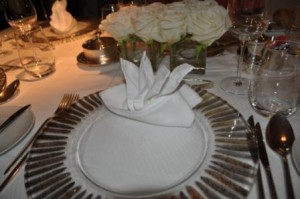
It was also continental in flavor: Indeed, the entire cruise had a strong French accent. This isn’t the sort of ship where you’d wear sweat pants and a baseball cap. Indeed, the French ladies somehow managed to look fresh and sharp even after clambering all over dusty cobblestoned streets all morning.
As for food, I don’t think I ever saw a hamburger, nor a slice of pizza. But there was plenty of variety: buffet breakfasts and lunches (the only thing the French chefs couldn’t seem to master is scrambled eggs, although they did fine with omelets; go figure). Dinner is either a buffet or a sit-down restaurant-style meal with at least four choices for each course; meat, fish, pasta, and vegetarian entrees are always on offer. And deserts, well… they left me wondering why I hadn’t packed the pants with an elastic waist. (Speaking of which, how do the French manage it? All those crème brûlées and tartes citrones and pain au chocolat, and there isn’t a snowball’s chance in Hades that any of them would be caught dead wearing elastic.)
On a local note: I was also pleased that the shore stops were long enough to allow passengers to explore tavernas and restaurants for lunch or snacks, and even, in most cases, dinner. I had plenty of time to get a taste of local seafood, salads, and — best of all — the mezzas (appetizers) that are my favorite part of a Greek meal.
Music on the Mediterranean
It hardly seemed fair to schedule concerts after touring all day and eating all evening, but when else? So at around 9:30 after dinner, we made our way to the auditorium, and really — Bach, Beethoven, Brahms — what better way to end the day?
Classical concerts often seem like stuffy affairs. But these were quite the opposite. The musicians spoke directly to the audiences (in French and English) about the pieces they were playing. But informality does not equate to lack of quality: Over the course of six nights, we attended six concerts that might just as easily have taken place in any major concert hall in the world. Indeed, one evening, I wandered into the lounge to find Vonsattel practicing Rachmaninoff’s Variations on a Theme by Paganini, in preparation for an upcoming concert in Germany.
In addition to its classical cruises, Ponant also offers jazz-themed cruises, following a similar schedule of nightly performances and daily interactions with the musicians. Ponant ships are bilingual (French and English), and on our cruise, some of the musicians themselves spoke and gave presentations in both languages. Throughout our time on the ship, I found that both languages were fully accommodated (English and French speaking staff and tour guides). Music may be the universal language, but it helped that the talks were understandable to all.
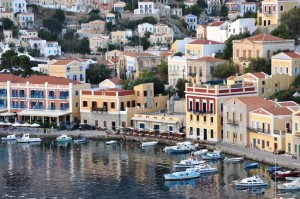
So: All that touring. All that eating. An international-class concert every single night. Daily music lectures. Plus all the normal offerings — cabaret singers, spas, fashion shows, poolside activities — of your typical upscale cruise. This was not a cruise where you’d be likely to get bored. It wasn’t, really, even a cruise where you were likely to get much rest, unless you were willing to skip one of the activities. Cruising past the ancient ruins of Troy on the way to Istanbul, it occurred to me that Scylla and Charybdis were alive and well, still presenting impossible choices — in my case, which activities to skip — to passing travelers. I never did find a satisfactory answer.
Practicalities
- Bring some nicer semi-formal clothes for the welcome reception.
- The dress code is relaxed, but elegant-casual prevails at dinner.
- Compagnie du Ponant runs several music cruises, including classical and jazz. More information about upcoming itinieraries and programs is available at the Ponant website.
- For a photo essay showing highlights of the islands, architecture, and people, please go to the Bucketripper Tripper Blog on Cruising the Greek Islands: Beyond Blue and White
links checked January, 2021
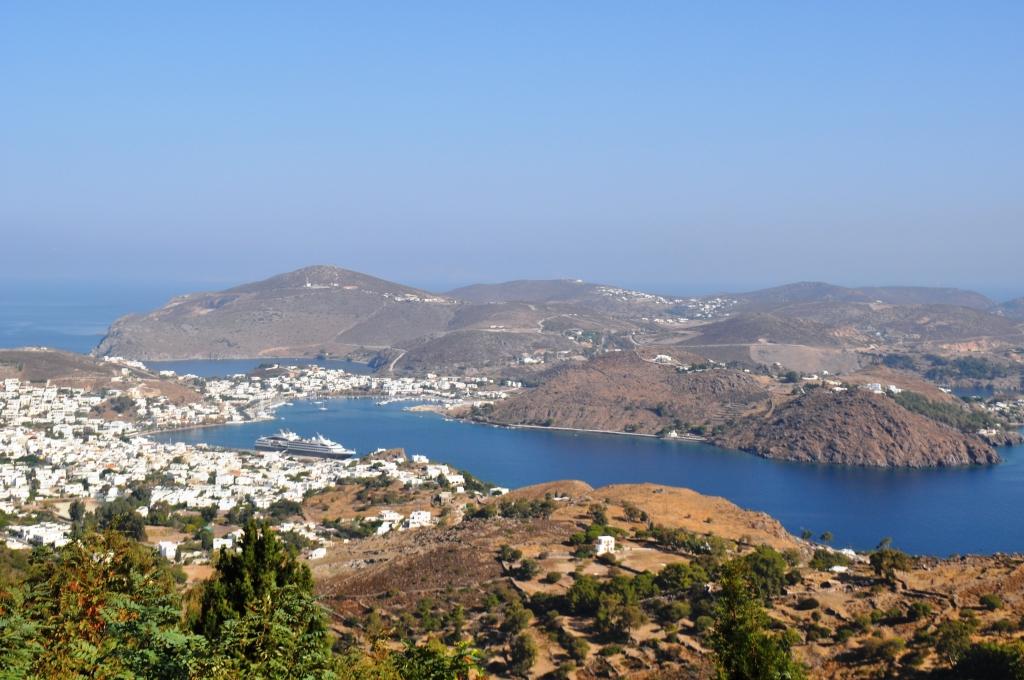


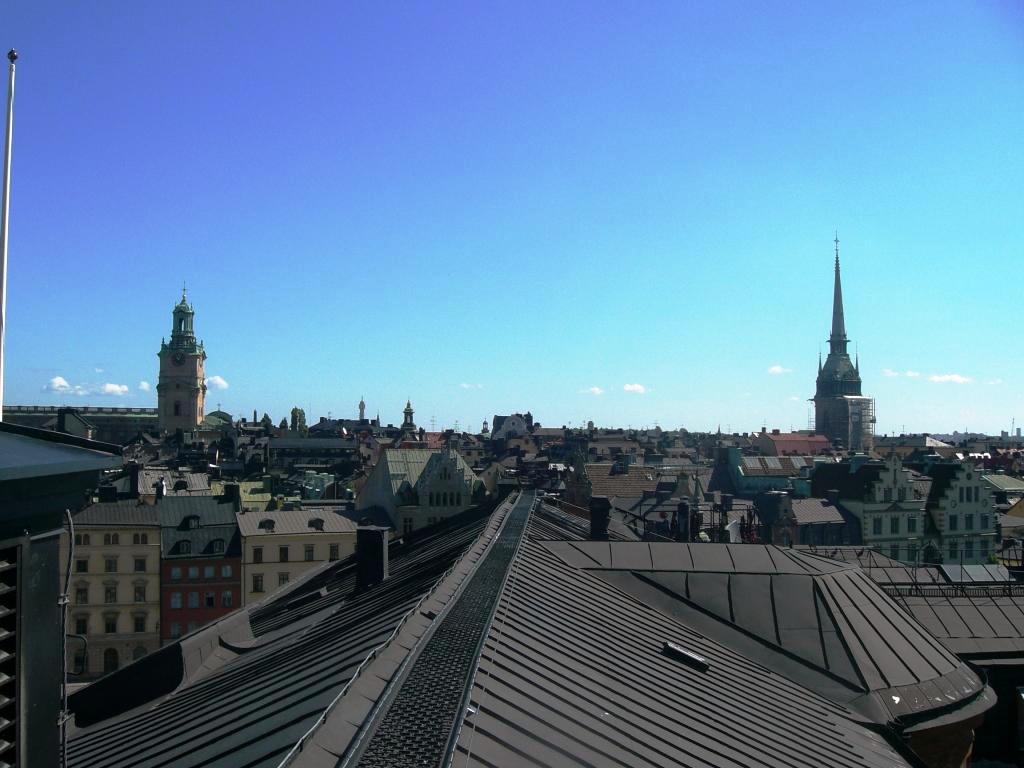
One thought on “Sailing the Greek Isles on L’Austral: A Moonlit Mediterranean Music Cruise”
Comments are closed.